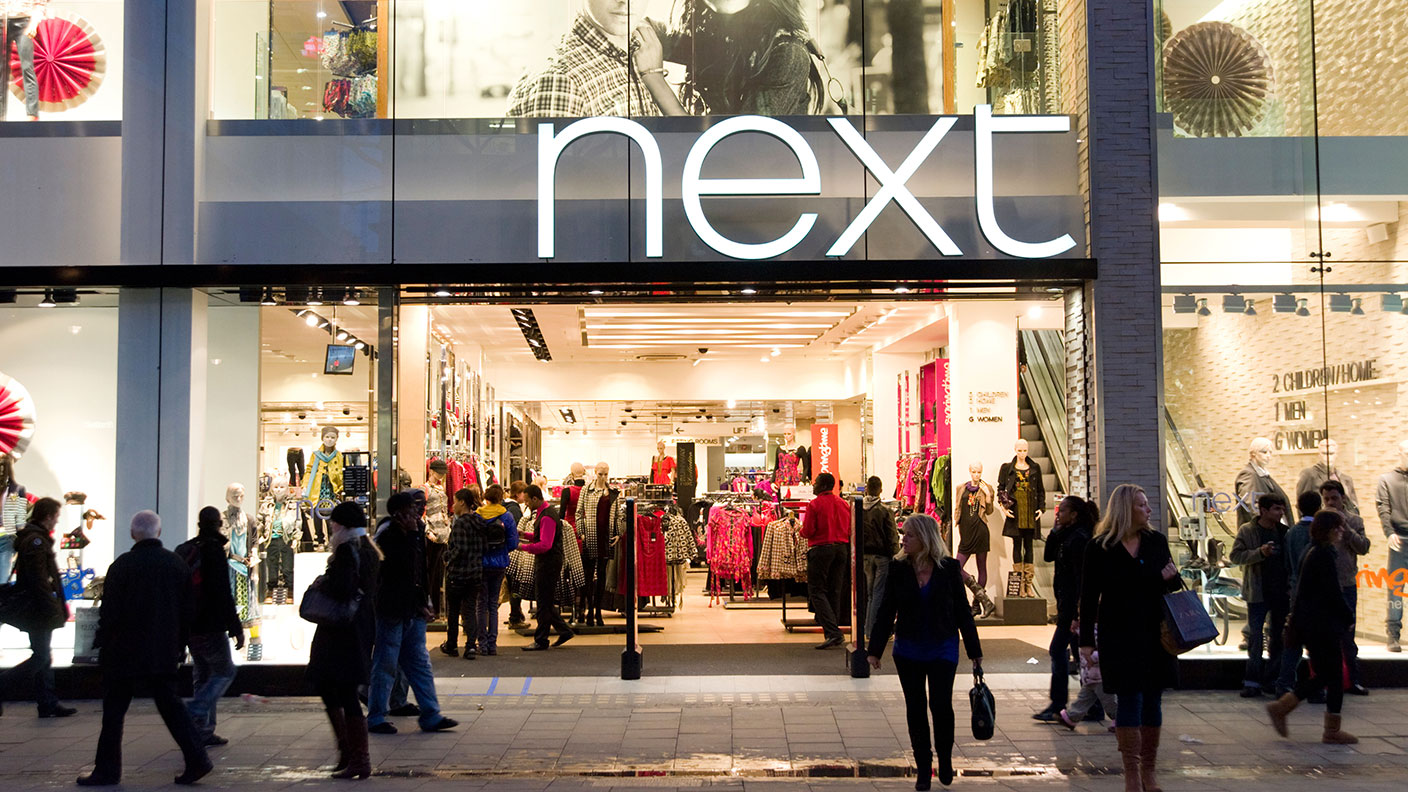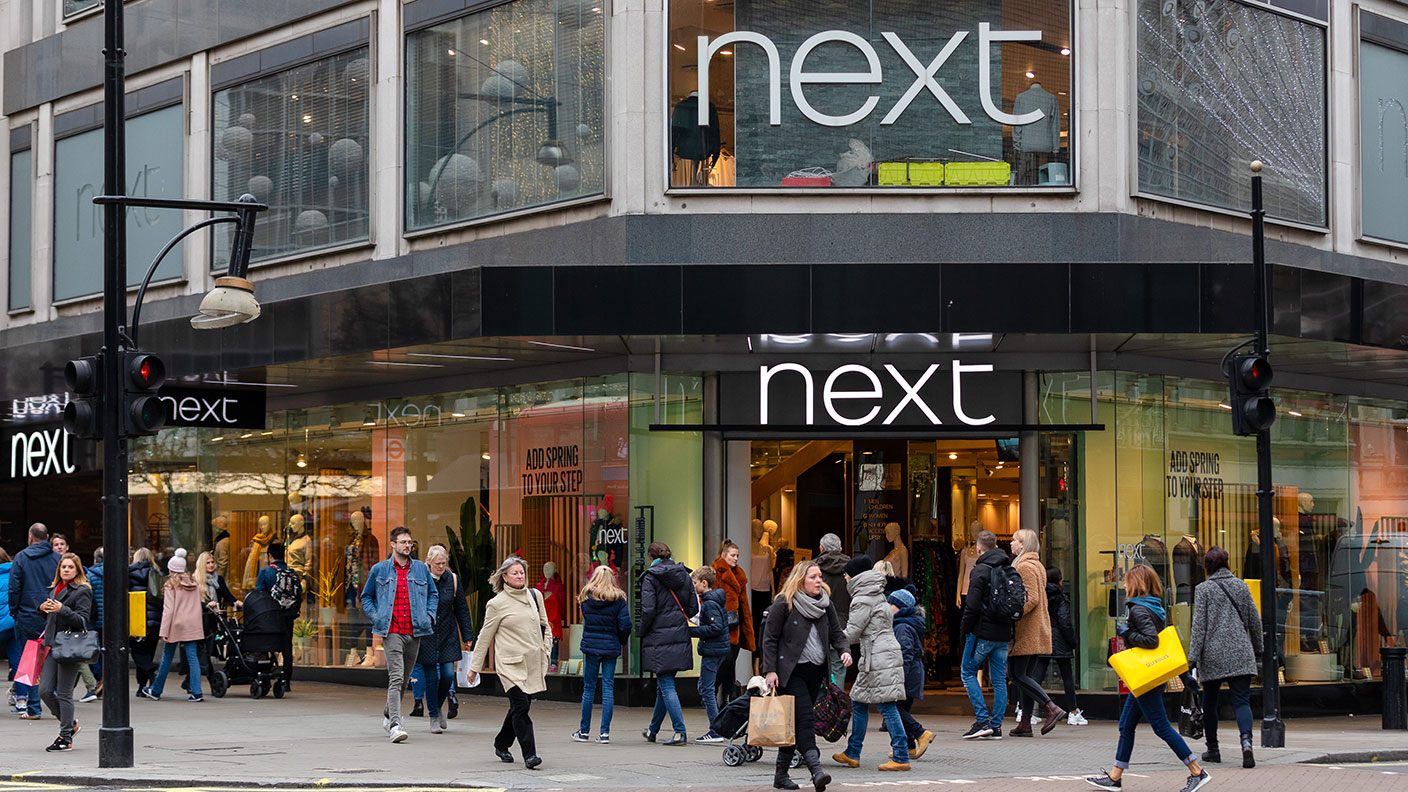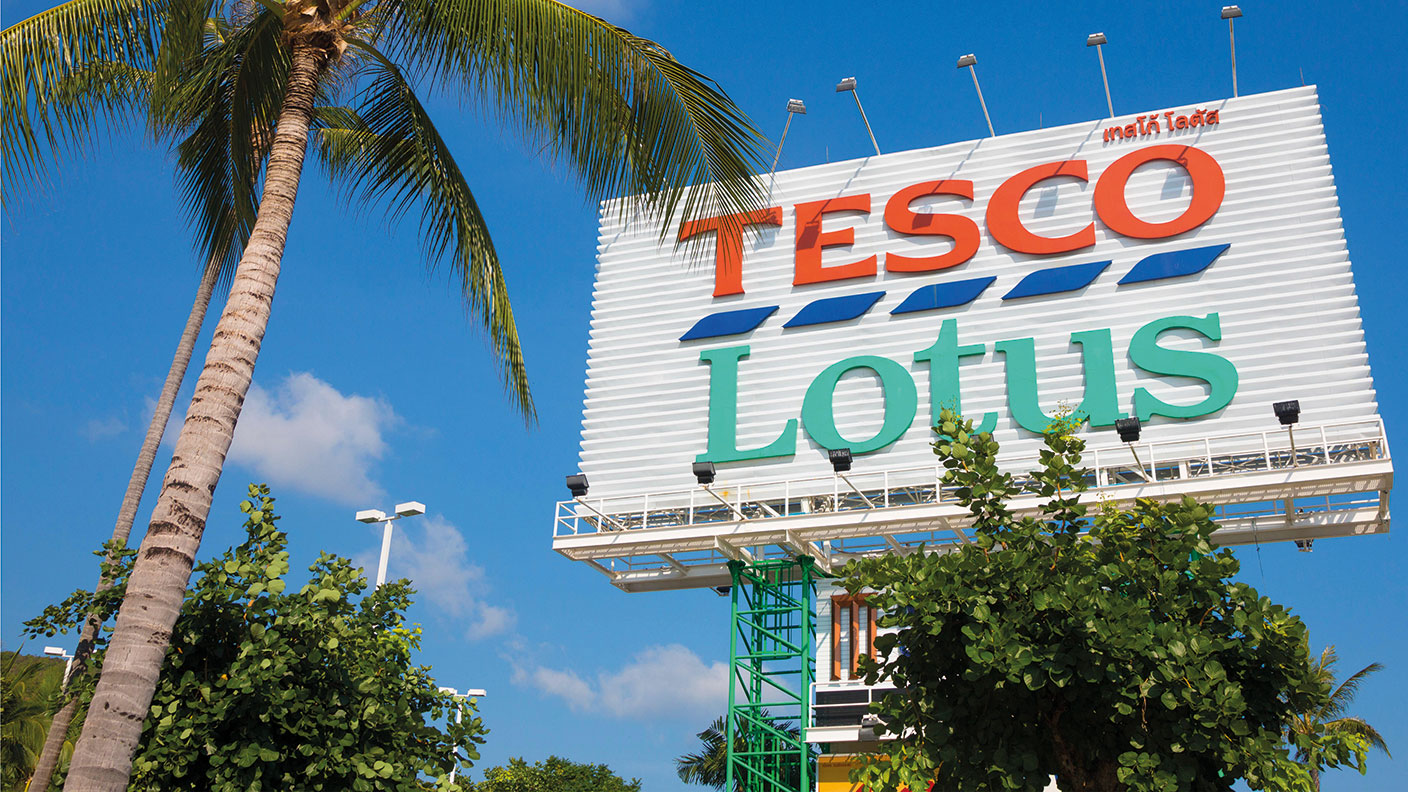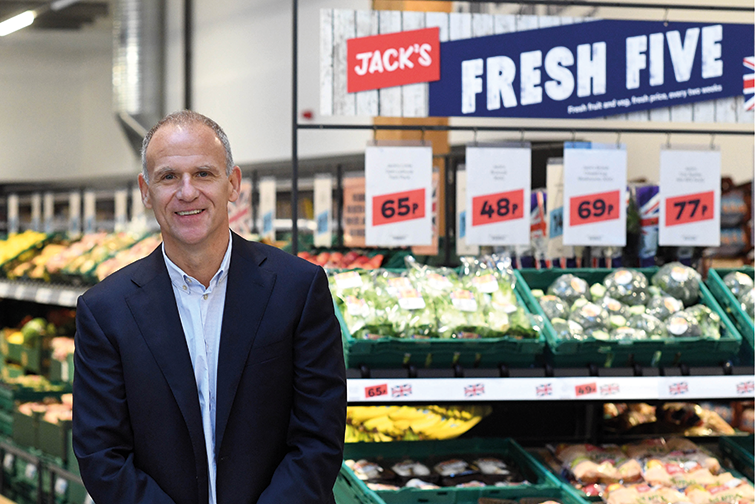Don’t let Tesco put you off investing in retail stocks
Tesco is having a terrible time. But there are some attractive retail stocks out there, says Ed Bowsher. Here, he picks two of his favourites.

Get the latest financial news, insights and expert analysis from our award-winning MoneyWeek team, to help you understand what really matters when it comes to your finances.
You are now subscribed
Your newsletter sign-up was successful
Want to add more newsletters?

Twice daily
MoneyWeek
Get the latest financial news, insights and expert analysis from our award-winning MoneyWeek team, to help you understand what really matters when it comes to your finances.

Four times a week
Look After My Bills
Sign up to our free money-saving newsletter, filled with the latest news and expert advice to help you find the best tips and deals for managing your bills. Start saving today!

Tesco had yet another terrible day yesterday. Its latest results were rotten and the share price fell by nearly 7%.
Even after yesterday's fall, here at MoneyWeek we still think now isn't the right time to invest.
But that doesn't mean you should avoid the whole retail sector. There are some attractive stocks out there and the economic backdrop is reasonably positive.
MoneyWeek
Subscribe to MoneyWeek today and get your first six magazine issues absolutely FREE

Sign up to Money Morning
Don't miss the latest investment and personal finances news, market analysis, plus money-saving tips with our free twice-daily newsletter
Don't miss the latest investment and personal finances news, market analysis, plus money-saving tips with our free twice-daily newsletter
So if you want to find out about two of my favourite retail stocks, read on.
Why you shouldn't buy Tesco shares
But first, I should explain quickly why we think you shouldn't buy Tesco shares just yet. The company's biggest problem is that it simply isn't generating enough cash. And if it tries to boost cash flow by squeezing its suppliers, the suppliers can say something like this: "your market share is falling, you're not so powerful any more. If you don't like our terms, tough." Or something like that, anyway.
Granted, there's a chance that a mega-bid from private equity might emerge some time soon, but there's only a chance of that happening, and I suspect that the chance is lower than many people realise. So when I weigh up the risk/reward ratio, there's no way I'm going to buy at last night's share price of 171p.
And if you'd like to read a more detailed analysis of Tesco's problems, read Phil Oakley's excellent article Tesco shares could tank below a pound.
There are much better retail stocks than Tesco
So where are the better retail stocks than Tesco? Well I don't think that Sainsbury's or Morrisons are much more attractive. And like Tesco, they're also struggling to cope with structural issues such as increased online shopping and the rise of Aldi and Lidl.
But I am getting increasingly interested in Marks & Spencer (LSE: MKS). Granted, M&S has had plenty of problems over the last 15 years, and even now its clothing offer could be improved.
But the big plus point for M&S these days is that more than 50% of its sales are in food. And a lot of those food sales are made at the fast-growing Simply Food chain. Simply Food fits very well with the current trend in food retail the move away from the big weekly shop on a Saturday to smaller, more frequent shops at stores that are nearer to home or work. As a result, I think that M&S can continue to grow its market share in food.
And it's not just the standalone Simply Food stores that chime with current trends. Many of the larger M&S stores that offer both clothing and food are on traditional high streets rather than big out-of-town retail parks. So for many people, it's easier to drop into a large(ish) M&S rather than a really large Tesco Extra near a big road junction.
The Simply Food chain also means that M&S has plenty of locations where online shoppers can pick up their click and collect' purchases. All of these pick-up points are an important asset, which can only become more valuable in future.
I also think that M&S is beginning to make real progress with its website, and that may enable it to take a bit of market share from Next (LSE: NXT) in the online clothing space.
That said, I do realise that M&S still needs to do more work on its womenswear offer. Back in the 20th century, womenswear was the chain's bread and butter, but the company's continuing struggle in this area has been the main reason why M&S has struggled so much since the millennium.
However, I think that continuing issues with womenswear are fully reflected in the share price. At 419p, M&S is trading on a relatively low price/earnings ratioof 12, and is on a 4.4% dividend yield.I don't own shares in M&S, but the share price is now cheap enough to tempt me.
M&S's big rival in clothing, Next, is more expensive. It trades on a price/earnings ratio of 15. However, if you're prepared to pay that higher price, you get a company with a fantastic record and a management team who keep on getting it right, quarter after quarter. I own shares in Next, and I have absolutely no intention of selling them.
Don't worry too much about September's poor sales figures
There's one other issue that I want to look at today. You might have seen that September saw a decline in retail sales volumes in other words, a decline in the actual number of items sold.
Now, that might worry you, but I don't think it should as I suspect that October and November will be much better. That's because the unusually good weather in September meant that many folk delayed their purchases of new autumn/winter clothing, but they'll be making those purchases now.
The recent improvement in the UK economy should also boost retail stocks. George Osborne will do everything he can to ensure that the economy continues to motor until the election in May, so that's another reason to make a modest investment in Marks & Spencer or Next.
Don't let Tesco's travails put you off retail stocks!
Our recommended articles for today
Sovereign defaults: Which will be the first domino to fall?
SUBSCRIBERS ONLY
When countries go bust, others follow suit. Not even our Canute central banks will be able to hold back the coming wave, says Jonathan Compton.
Is your glass half-full or half-empty?
When it comes to investments, optimism is usually a better philosophy than pessimism, says David Thornton. Here, he explains why.
On this day in history
24 October 1929: The Wall Street Crash
On this day in 1929, otherwise known as 'Black Thursday', the Dow Jones Industrial Average fell sharply, and confidence in the banks collapsed.
Get the latest financial news, insights and expert analysis from our award-winning MoneyWeek team, to help you understand what really matters when it comes to your finances.
Ed has been a private investor since the mid-90s and has worked as a financial journalist since 2000. He's been employed by several investment websites including Citywire, breakingviews and The Motley Fool, where he was UK editor.
Ed mainly invests in technology shares, pharmaceuticals and smaller companies. He's also a big fan of investment trusts.
Away from work, Ed is a keen theatre goer and loves all things Canadian.
Follow Ed on Twitter
-
 Should you buy an active ETF?
Should you buy an active ETF?ETFs are often mischaracterised as passive products, but they can be a convenient way to add active management to your portfolio
-
 Power up your pension before 5 April – easy ways to save before the tax year end
Power up your pension before 5 April – easy ways to save before the tax year endWith the end of the tax year looming, pension savers currently have a window to review and maximise what’s going into their retirement funds – we look at how
-
 Defeat into victory: the key to Next CEO Simon Wolfson's success
Defeat into victory: the key to Next CEO Simon Wolfson's successOpinion Next CEO Simon Wolfson claims he owes his success to a book on military strategy in World War II. What lessons does it hold, and how did he apply them to Next?
-
 How to profit from rising food prices: which stocks should you invest in?
How to profit from rising food prices: which stocks should you invest in?Tips Food prices are rising – we look at the stocks to avoid and the one to invest in this sector.
-
 Tesco looks well-placed to ride out the cost of living crisis – investors take note
Tesco looks well-placed to ride out the cost of living crisis – investors take noteAnalysis Surging inflation is bad news for retailers. But supermarket giant Tesco looks better placed to cope than most, says Rupert Hargreaves.
-
 Next’s results stand out against a tough retail backdrop
Next’s results stand out against a tough retail backdropAnalysis FTSE 100 retailer Next is dealing well with the tough conditions on the high street, with rising profits and a plan that's working. Rupert Hargreaves looks at the numbers.
-
 Why Next is the only retailer I’d want to own in my portfolio
Why Next is the only retailer I’d want to own in my portfolioNews The retail sector is brutally competitive. But high street stalwart Next is exploiting and building on its significant competitive advantages, says Rupert Hargreaves.
-
 Next shares soar as sales smash expectations – is the stock a buy?
Next shares soar as sales smash expectations – is the stock a buy?News High street and online retailer Next has reported a big rise in sales and profits. John Stepek looks at its performance and asks if it's worth buying Next shares.
-
 Tesco sells its retail subsidiary in Thailand and Malaysia for £8bn
Tesco sells its retail subsidiary in Thailand and Malaysia for £8bnNews Tesco has agreed to sell its southeast Asian operations to Thai conglomerate Charoen Pokphand for £8.2bn in cash.
-
 Tesco should keep its Asian assets
Tesco should keep its Asian assetsOpinion The £7bn that Tesco could get for its Tesco Lotus business in Asia looks enticing. But holding on to it would be smarter, says Matthew Lynn.
